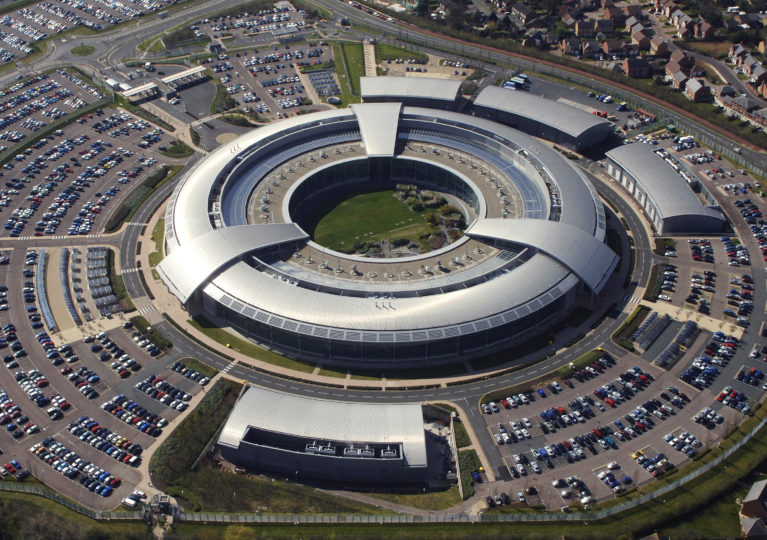Mass surveillance and Snoopers' Charter
Liberty wins first battle in landmark challenge to mass surveillance powers in the Investigatory powers Act
Posted on 27 Apr 2018
In a landmark victory for privacy rights, the High Court has today ruled part of the Government’s flagship surveillance law, the Investigatory Powers Act, is unlawful – following a legal challenge from human rights campaigning organisation Liberty.
In this first stage of its comprehensive challenge to the law, Liberty focused on government powers to order private companies to store everybody’s communications data, including internet history, so that state agencies can access it. Liberty argued that retaining every person’s data in this way without limits and safeguards violates the UK public’s right to privacy.
In today’s ruling, Lord Justice Singh and Mr Justice Holgate found that these intrusive powers are unlawful.
The Court ruled this part of the Act is incompatible with people’s fundamental rights because ministers can issue data retention orders without independent review and authorisation – and for reasons which have nothing to do with investigating serious crime (par. 89).
Today’s judgment means the Government will now have to amend this part of the Investigatory Powers Act so that it no longer breaches people’s rights. The Court has given ministers until Thursday 1 November 2018 to do so (par. 183).
Martha Spurrier, Director of Liberty, said: “Police and security agencies need tools to tackle serious crime in the digital age – but creating the most intrusive surveillance regime of any democracy in the world is unlawful, unnecessary and ineffective.
“Spying on everyone’s internet histories and email, text and phone records with no suspicion of serious criminal activity and no basic protections for our rights undermines everything that’s central to our democracy and freedom – our privacy, free press, free speech, protest rights, protections for journalists’ sources and whistleblowers, and legal and patient confidentiality. It also puts our most sensitive personal information at huge risk from criminal hackers and foreign spies.
“The Court has done what the Government failed to do and protected these vital values – but today’s ruling focuses on just one part of a law that is rotten to the core. It still lets the state hack our computers, tablets and phones, hoover up information about who we speak to, where we go, and what we look at online, and collect profiles of individual people even without any suspicion of criminality. Liberty’s challenge to these powers will continue.”
The case was funded by donations from members of the public. Today Liberty is launching the second phase of crowdfunding to ensure it can continue with the next stage of the legal challenge.
About the case
This part of Liberty’s challenge – and today’s ruling – focuses on powers in Part 4 of the Investigatory Powers Act. These allow the Government to force communications companies and service providers to store records of everybody’s location tracking information from our mobile phones, web browsing history and lists of who we call, text or email, when and how often.
This information, which communications providers might not otherwise collect or keep, paints an intimate picture of a person’s movements, contacts, habits and views.
Using other powers in the Act, dozens of public bodies – from local police to financial regulators – can then access this information with no independent authorisation and for reasons that have nothing to do with investigating terrorism or serious crime.
Liberty asked the Court to find these parts of the Act unlawful because, among other things, they let the Government compel retention of this data:
- With no independent authorisation by a court or independent agency
- For crime-fighting purposes extending far beyond “serious crime”
- For a wide range of other non-crime purposes, including collecting taxes and fines owed and regulating financial services.
The Government must now change the law to require prior review by a court or independent administrative body and – in the context of crime-fighting – to only allow access to data for purposes of combatting “serious crime.”
The Court did not rule on the legitimacy of the wide range of other non-crime purposes in the Act because the Government has already proposed legislation to remove them.
Prior to today’s ruling, the Government had conceded Part 4 of the Investigatory Powers Act has several of the same flaws – but argued it should nonetheless be permitted to continue to apply it until April 2019. The High Court rejected this argument.
About the Investigatory Powers Act
The Investigatory Powers Act became law in late 2016. It was intended to introduce transparency to state surveillance following Edward Snowden’s revelations of unlawful mass monitoring of the public’s communications. Instead it simply legalised the practices he exposed – and introduced hugely intrusive new powers.
It passed in 2016 as Parliament reeled from the EU referendum – despite the Government failing to provide any evidence that the extreme indiscriminate powers it introduced were lawful or necessary to prevent or detect crime. A public petition calling for its repeal attracted more than 200,000 signatures, but was not debated by Parliament.
The Investigatory Powers Act also allows the state to hack computers, phones and tablets on an industrial scale, and collect the content of people’s digital communications and records about those communications created by our devices. It also allows the creation and linking of huge ‘bulk personal datasets’.
Liberty has also issued legal challenges to three other parts of the Act containing these powers.
Liberty instructed Shamik Dutta at Bhatt Murphy Solicitors, Martin Chamberlain QC, Ben Jaffey QC and David Heaton in this case.
For enquiries and interviews, please contact the Liberty press office: 0207 378 3656 / 07973 831 128 / pressoffice@liberty-human-rights.org.uk
I'm looking for advice on this
Did you know Liberty offers free human rights legal advice?
What are my rights on this?
Find out more about your rights and how the Human Rights Act protects them
Did you find this content useful?
Help us make our content even better by letting us know whether you found this page useful or not


